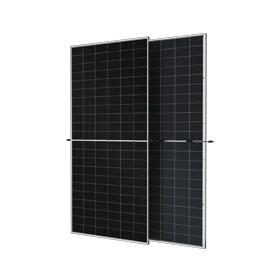Exploring the Benefits and Applications of PV Solar Panels for Sustainable Energy Solutions
The Rise of PV Panels A Sustainable Future
Photovoltaic (PV) panels, commonly known as solar panels, have become an increasingly vital component in the global shift toward renewable energy. As climate change concerns rise and energy demands escalate, the adoption of solar energy through PV technology has gained tremendous momentum. This article explores the principles of PV panels, their benefits, advancements in technology, and their role in fostering a sustainable future.
Understanding PV Panels
PV panels function by converting sunlight into electricity through the photovoltaic effect. This process involves semiconductor materials, usually silicon, which absorb photons from sunlight and release electrons. The movement of these electrons generates electric current. PV panels are typically composed of several solar cells, which are interconnected to produce a desired voltage and power output.
There are various types of PV panels, including monocrystalline, polycrystalline, and thin-film solar panels. Monocrystalline panels are known for their high efficiency and sleek appearance, while polycrystalline panels are more affordable but slightly less efficient. Thin-film panels, on the other hand, are lightweight and flexible, making them suitable for specialized applications. Each type offers unique advantages, catering to diverse consumer needs and installation environments.
Benefits of PV Panels
The benefits of PV panels extend beyond just electricity production. One of the most significant advantages is their potential to reduce greenhouse gas emissions. By utilizing solar energy, which is abundant and renewable, we can significantly lower our reliance on fossil fuels, which contribute to air pollution and climate change. This transition plays a crucial part in mitigating the effects of global warming and promoting environmental protection.
Moreover, PV panels can lead to substantial savings on energy costs. Homeowners and businesses that invest in solar power can reduce their electricity bills significantly, and in some cases, become entirely energy independent. Many regions also offer incentives, rebates, and tax credits for solar installations, making the initial investment more accessible. Long-term savings, when combined with these incentives, enhance the economic viability of solar energy.
Additionally, the deployment of PV panels promotes energy security and resilience. By generating power locally, communities can reduce their vulnerability to energy supply disruptions caused by natural disasters or geopolitical tensions. This decentralized approach to energy production also empowers individuals and localities, allowing them to play a more active role in their energy decisions.
pv panels

Technological Advancements
The field of solar technology is rapidly evolving, leading to higher efficiencies and lower costs for PV panels. Innovations such as bifacial solar panels, which can capture sunlight from both sides, and advanced tracking systems that optimize sun exposure, have shown promising results in boosting energy generation. Furthermore, research into perovskite solar cells is paving the way for even more efficient and affordable alternatives to traditional silicon-based panels.
Energy storage technologies, such as batteries, are also advancing in tandem with PV panels. The ability to store excess solar energy for use during non-sunny periods significantly enhances the reliability and attractiveness of solar power. As battery prices continue to decline, the combination of solar panels and energy storage solutions is becoming a staple in residential and commercial energy systems.
The Road Ahead
Despite the numerous benefits and advancements, the full potential of PV panels has yet to be realized. Challenges such as regulatory hurdles, initial investment costs, and the need for infrastructure upgrades present obstacles to widespread adoption. Nevertheless, as public awareness of climate issues increases, and technologies continue to improve, the demand for solar energy is expected to surge.
Policies promoting renewable energy, investments in green technologies, and public-private partnerships will play pivotal roles in facilitating the expansion of PV panel use. Furthermore, education and outreach initiatives are essential to inform communities about the benefits and options available for solar energy adoption.
Conclusion
Photovoltaic panels represent a significant leap forward in our quest for sustainable energy solutions. They not only offer a pathway to reduce greenhouse gas emissions and combat climate change but also empower individuals and communities to take control of their energy future. As technology progresses and the world increasingly embraces renewable sources of energy, PV panels will undoubtedly play a crucial role in shaping a cleaner, greener, and more sustainable tomorrow.
-
Unlocking Energy Freedom with the Off Grid Solar InverterNewsJun.06,2025
-
Unlock More Solar Power with a High-Efficiency Bifacial Solar PanelNewsJun.06,2025
-
Power Your Future with High-Efficiency Monocrystalline Solar PanelsNewsJun.06,2025
-
Next-Gen Solar Power Starts with Micro Solar InvertersNewsJun.06,2025
-
Harnessing Peak Efficiency with the On Grid Solar InverterNewsJun.06,2025
-
Discover Unmatched Efficiency with the Latest String Solar InverterNewsJun.06,2025







